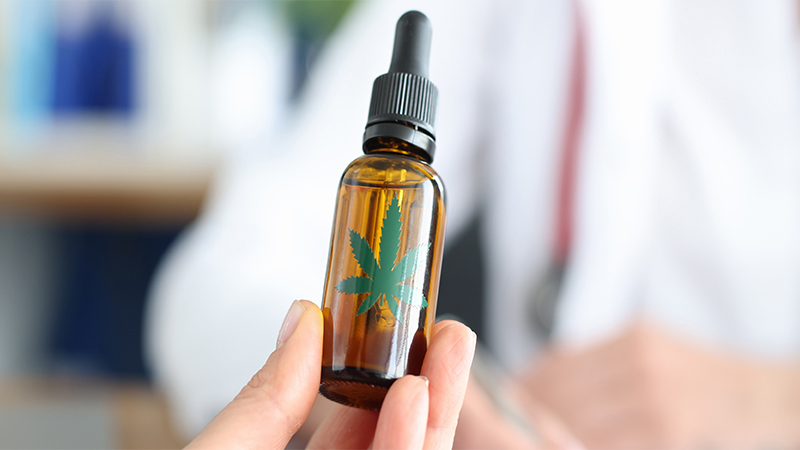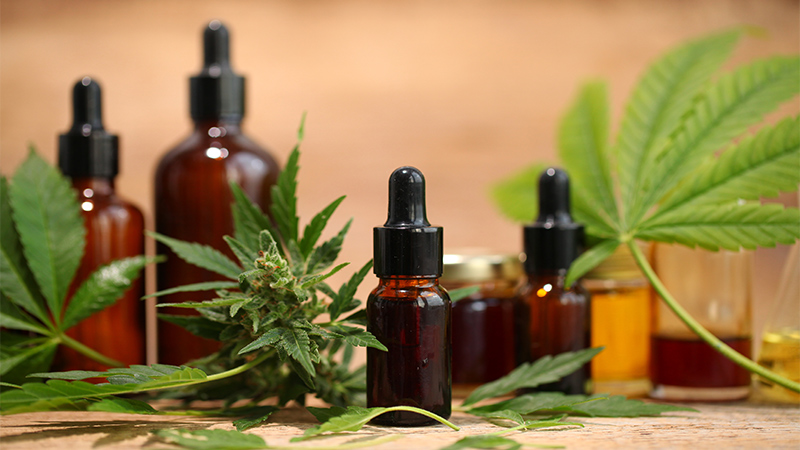Does Health Insurance Cover CBD Oil?

With more evidence piling up for the health benefits of CBD oil, there’s a growing number of people jumping on the bandwagon.
However, for many people, the price of CBD oil is too big an expense, making them turn to cheaper options that aren’t as effective as CBD extracts.
So, being left between high prices and poor-quality products, many wonder if their health insurance policy covers the cost of CBD oil.
This article breaks down the subject of CBD supplements and insurances — and whether your program will cover CBD oil.
Is CBD Oil Covered By Health Insurance?
As of today, the answer is a clear “no.”
Currently, the vast majority of insurance agencies don’t cover CBD oil, even when a physician issues a prescription for it.
Many doctors are acknowledging the health benefits of CBD and its potential for treating a wide range of health conditions. So far, CBD has proven very safe and its side effects are benign.
That’s why doctors have started recommending CBD as a treatment in a combination with conventional medications.
This made many patients wonder whether or not insurance agencies cover the cost.
In certain regions, CBD may be covered by private insurance companies in some cases.
However, this doesn’t apply to hemp-derived CBD oil. In the US, you can only ask your insurance agency to cover the cost of Epidiolex, a prescription drug containing CBD. Epidiolex is an FDA-approved drug for treating rare forms of epilepsy.
In countries like Canada or the UK, another prescription CBD-based drug called Sativex may be eligible for insurance.
Why do Health Insurance Companies refuse to Cover CBD?

Despite the growing body of scientific evidence supporting the medicinal properties of a highly potent CBD oil, health insurance companies still don’t cover the cost. This makes people wonder why other pharmaceutical drugs — with higher prices and more severe adverse reactions — are covered, and CBD oil doesn’t fall into that bracket.
Here’s why:
CBD is Not FDA-Approved
Before any drug gets released into the market, it must receive approval from the FDA so that the doctors can legally recommend it to patients. CBD is still labeled as a New Dietary Ingredient (NDI), requiring extensive lab research before the FDA approves it as a drug.
Insurance companies won’t cover the cost of anything that hasn’t been approved by the FDA. The process required for acceptance is time-consuming and expensive.
CBD is Derived from Cannabis
The laws regarding hemp and marijuana are still cloudy. Hemp has only been legalized recently on a federal level. The Farm Bill was signed into law in 2019, making hemp and its derivatives legal as long as they contain no more than 0.3% of THC.
Marijuana, on the other hand, is still a Schedule 1 drug, both on a federal and state level. Because both hemp and marijuana differ in terms of legality, many companies take a safe approach and decide not to cover such products in their insurance.
Insurance agencies aren’t the only companies that shy away from such goods. Many shipping companies, even local ones where marijuana is legal, refuse to deliver it.
Can Patients Count On Alternative Options if Their Insurance Doesn’t Cover CBD?
As of today, patients interested in using CBD oil for its therapeutic benefits must cover the costs from their own wallets. No financial help is available, even for those who received a prescription from their doctor.
Since CBD is unregulated, it’s important to stay cautious when buying CBD oil. High-quality CBD oils often cost over $100 per bottle. Many scam companies are trying to take advantage of the lack of regulations, churning out poorly manufactured products that are often mislabeled, and sometimes, downright dangerous due to the presence of toxic contaminants.
To make sure you’re buying real CBD products, look for reputable brands that have a lot of positive reviews on third-party websites and provide relevant certificates of analysis. A report from an independent laboratory is proof of quality and transparency.
Benefits of Using CBD Oil

Scientists have fueled massive resources into research on CBD over the past few years. A lot of this research has brought promising results, and there are a lot of well-established health benefits of CBD.
That being said, the only health condition insurance companies will cover with regards to CBD treatment is Epidiolex or Sativex. This primarily involves epilepsy, multiple sclerosis, and the side effects of chemotherapy. Until the FDA approves other CBD-based medications for the treatment of a particular condition, insurance won’t cover the cost of CBD oil.
Here are a few science-backed health benefits of CBD:
- Improves your body’s response to stress
- May relieve anxiety and depression
- Reduces pain and inflammation
- Supports healthy sleep cycles
- Reduces acne formation
- Reduces the frequency and severity of epileptic seizures
Key Takeaways on CBD Oil & Insurance Companies
The government allows the sale of CBD products but insurance companies won’t cover the costs of buying CBD oils and other hemp supplements for medical purposes.
That’s because hemp-derived CBD hasn’t received approval from the FDA when it comes to treating the health conditions that CBD can tackle, according to recent research.
So even if doctors acknowledge the health benefits of CBD oil and prescribe it to you as a treatment, insurance policies aren’t willing to reimburse the cost needed to procure it.
That being said, CBD oil is reasonably priced compared to many other pharmaceutical medications, even after insurance covers them. If you’re looking for the best deals on high-quality CBD oils, we recommend checking out a trusted online store. You can use the recommendations from our ranking of the best CBD oils and enjoy discount codes from the top U.S. brands.
Do you think that insurance companies will cover the cost of CBD oil in the future? Let us know your thoughts on this!